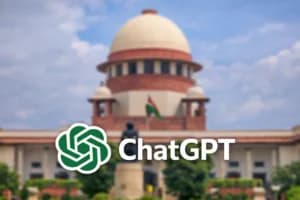New Delhi, 10 November 2025: The Supreme Court on Monday delivered a detailed judgment overturning a Karnataka High Court ruling in a 22-year-old land sale dispute. The bench led by Justice J.B. Pardiwala spent considerable time unpacking layers of litigation, contradictions in pleadings, and conduct of the parties before concluding that the High Court should not have decreed specific performance of a terminated sale agreement.
The atmosphere in Court No. 4 was intense yet oddly calm. Lawyers on both sides shuffled through thick bundles of papers while the bench occasionally paused to ensure clarity, especially because the matter involved multiple vendees, vendors, and subsequent purchasers.
Background
The dispute revolved around a massive chunk of agricultural land-354 acres in Haveri district-originally agreed to be sold in April 2000 through an unregistered agreement (ATS). Only ₹2 lakh was paid upfront, with another ₹6 lakh paid over time.
Things soured quickly. Family-related litigation started swirling around the property, a status quo order was passed, tenants were being relocated, and disputes emerged over whether the vendors were honouring their part of the bargain.
In March 2003, the original vendors sent a legal notice terminating the agreement, citing the ongoing litigation and the death of a co-owner. The notice bluntly stated that if the vendees did not take back their advance money within a month, the agreement would be “deemed cancelled.”
The vendees did reply, saying they had done everything required and blamed the pending civil suit for delays. But after this exchange, nothing happened between the parties for four years.
Once the earlier litigation was withdrawn in February 2007, the vendors promptly sold the land to subsequent purchasers, triggering fresh disputes. This led to the filing of a suit in 2007 demanding specific performance-a legal remedy where the court orders actual execution of the sale deed.
Court's Observations
Justice Pardiwala’s judgment took a surgical approach to the core question: Was the suit for specific performance even maintainable?
The bench noted, in clear terms, that the earlier agreement stood terminated through the vendors’ 2003 notice, and unless the vendees challenged that termination, they could not seek enforcement of the contract.
The bench observed, "Until the termination notice is declared invalid, the agreement itself cannot be treated as subsisting. The absence of such a prayer goes to the root of jurisdiction."
The Court aligned itself with previous rulings such as I.S. Sikandar and Sangita Sinha, reinforcing the legal principle that specific performance cannot be granted on a non-existent contract.
Justice Pardiwala pointed out that the High Court wrongly treated the termination notice as incomplete simply because earnest money was not refunded. According to the bench, that reasoning was legally unsustainable.
The bench also remarked on the timing of the subsequent sale deeds executed within days of the earlier suit's withdrawal but held that this alone did not make the subsequent purchasers dishonest under law. What mattered was the legal requirement that the earlier termination should first have been invalidated.
The Court addressed another important issue: whether all original vendees were parties seeking enforcement. They were not. Some remained defendants, one ex-parte, another supporting plaintiffs. The agreement being joint and indivisible complicated the matter further.
The bench noted, "The agreement was executed jointly. All vendees were not before the court seeking enforcement. Such enforcement is impermissible in absence of all necessary parties actively pursuing relief."
Decision
After analysing the chronology, omissions, and applicable legal principles, the Supreme Court set aside the High Court’s decree.
It held that the suit for specific performance filed by the original vendees was not maintainable, as they failed to seek a declaration that the termination of the 2000 agreement was invalid.
With that, the bench concluded that the High Court had erred in forcing subsequent purchasers to execute sale deeds in favour of the plaintiffs.
The judgment ended firmly on the principle that jurisdiction depends on the existence of a valid contract, and once a contract is terminated rightly or wrongly the party seeking enforcement must challenge the termination first.
The Court, therefore, allowed the appeals filed by the subsequent purchasers and restored the core finding of the Trial Court regarding maintainability and legal validity of the termination.
Case Title: K.S. Manjunath & Others vs. Moorasavirappa @ Muttanna Chennappa Batil (since deceased) by his LRs & Others















